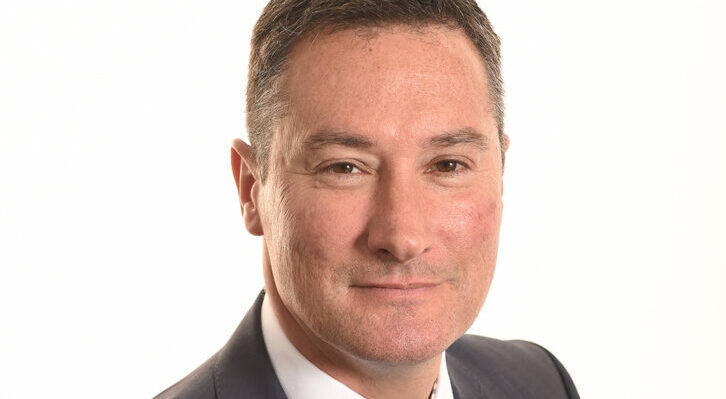As someone who has been part of the NHS for a very long time, it will come as no surprise to hear I am incredibly passionate about it and everything we stand for.
passionate about it and everything we stand for.
To describe the NHS as an organisation does not do it justice. It’s a national institution, a treasure and one that has rarely been held in higher esteem following our incredible response to the pandemic.
As such, being part of the NHS is an honour and a responsibility for everyone involved. A publicly funded body at the heart of our communities, we’re here to offer care and support at some of the worst moments in people’s lives and, of course, the very best too.
As Chief Executive but also a dad, husband and colleague to millions of people right across the health and social care system, I want the NHS to offer quality and safe services people can rely on and be confident in. I want us to research, develop and pioneer new ideas and techniques. I want us to do this revolutionary work in our traditional, caring and compassionate way. Remembering people are human, with hopes and fears, and we have families who need to know we’re going to be OK.
Of course, no organisation as vast and complex as the NHS can get it right all of the time, but we can commit to open and honest conversations about where we can and should improve. I know we then have some of the most talented and inspiring people to help us work out how we do that in the most effective way.
I’m particularly proud of the way the team is tackling this here at Blackpool Teaching Hospitals. When we think about being open and honest, we know we need to get better in places and we’re committed to making improvements that matter each and every day. Owning this need to improve is important and we are committed to providing the very best care and treatment we can to every person that needs it.
This week I met with some of the senior team to really focus on how we instill and inspire colleagues in what we call ‘quality improvement’. Whilst this might feel a bit corporate and jargony, in simple terms in equates to having processes and systems in place that helps us to identify the big challenges and equip people to fix and solve them.
The actual definition is that quality improvement is about giving the people closest to issues affecting care quality the time, permission, skills and resources they need to solve them. It involves a systematic and coordinated approach to solving a problem using specific methods and tools with the aim of bringing about a measurable improvement. You can see more here https://www.health.org.uk/sites/default/files/QualityImprovementMadeSimple.pdf
Put simply, quality improvement in Blackpool is going to focus on having no waits for care or treatment, having no waste in our services (in every sense of the word) and causing zero harm within practice. The last one sounds obvious, but remember we are dealing with complex and challenging procedures, often in emergency or crisis situations.
In a big organisation, with around 8,000 staff serving millions of local people and what you might describe as having ‘a lot on’, it’s important to create space and time to think about how we could do things better, practically. If you don’t, it follows that you probably never will. For this reason we are taking the approach of ‘framing the problem and supporting colleagues to solve it’. This is designed to empower colleagues from every team and every setting to get involved in making improvements on the ground that really matter.
It’s important to say we already have some excellent, quality services with people working in teams that are highly effective. We have also identified and already delivered some significant improvements in the past year. This is largely focused on feedback and intelligence we get from partners across the local health and social care system, the experience of patients and their families, from formal inspections and visits by the Care Quality Commission (CQC) or Health Education England (HEE) and NHS England and NHS Improvement colleagues regionally and nationally.
By being open and honest we’re able to focus on the areas which need the most improvement and will make the biggest difference to local people and we’ll be encouraging all staff to think about the art of the possible and ask themselves – what can I do to improve things for patients and my colleagues to be better, even the best?
Please, if you come into one of our settings or find yourself working alongside us, get involved. Ideas, feedback, suggestions are all welcome and often it is someone from outside the organisation who can see the simplest solution or issue.
Take care,
Kevin
Kevin McGee
Chief Executive